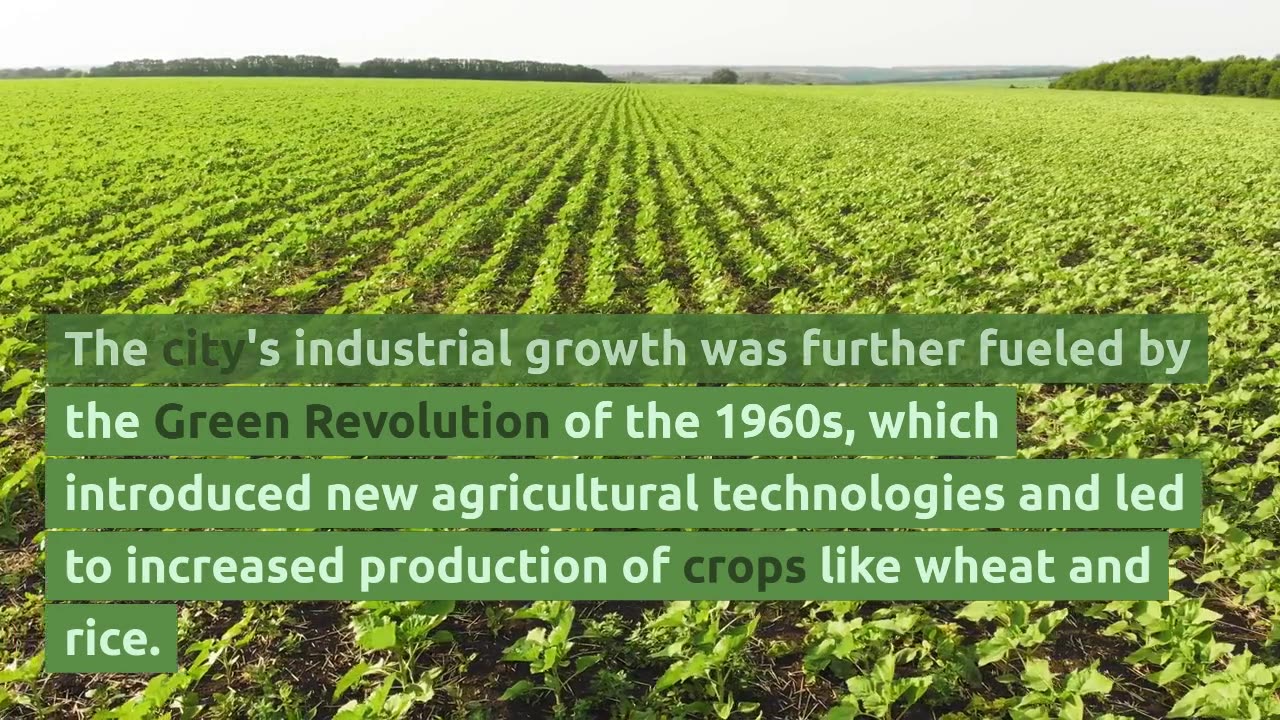Premium Only Content

History in detail of Faisalabad the 3rd Largest City of Pakistan
Faisalabad, formerly known as Lyallpur, is the third-most-populous city in Pakistan, located in the eastern province of Punjab. The city was founded in 1890 during British colonial rule and was named after Sir James Lyall, the then Lieutenant Governor of Punjab. The city was renamed Faisalabad in 1977 after King Faisal of Saudi Arabia, who played a significant role in Pakistan's economic development.
During the colonial period, Faisalabad was developed as an agricultural town and became a major center for cotton production. The city's fertile soil and access to irrigation made it a hub for cotton processing, and its cotton mills became a crucial component of the British Empire's textile industry.
After the partition of India in 1947, Faisalabad became a part of Pakistan, and the city continued to grow as an industrial center. The city's strategic location at the center of Pakistan's agricultural heartland made it a hub for the textile and manufacturing industries. The city's industrial growth was further fueled by the Green Revolution of the 1960s, which introduced new agricultural technologies and led to increased production of crops like wheat and rice.
In the 1970s and 1980s, Faisalabad experienced a period of rapid urbanization as the city's population grew, and new housing developments and commercial centers were built. The city's economy continued to thrive during this period, and Faisalabad emerged as a major center for textile manufacturing, with many large textile mills operating in the city.
In the 1990s, Faisalabad's economy began to diversify, with the city's entrepreneurs and investors establishing new businesses in areas like food processing, engineering, and software development. The city also saw significant investment in infrastructure, including the construction of new highways and airports.
Today, Faisalabad is a bustling metropolis with a population of over 3 million people. The city remains a major centre for textile manufacturing and is home to many large textile mills and garment factories. It has also become a hub for the country's agricultural industry, with many food processing and packaging companies located in the city. Faisalabad is also an important canter for higher education, with several universities and colleges located in the city.
-
 1:25:53
1:25:53
Kim Iversen
3 days agoStriking Back: Taking on the ADL’s Anti-Free Speech Agenda
67.8K25 -
 49:35
49:35
Donald Trump Jr.
11 hours agoA New Golden Age: Countdown to Inauguration Day | TRIGGERED Ep.202
148K169 -
 1:14:34
1:14:34
Michael Franzese
9 hours agoWhat's Behind Biden's Shocking Death Row Pardons?
65.3K42 -
 9:49
9:49
Tundra Tactical
8 hours ago $13.14 earnedThe Best Tundra Clips from 2024 Part 1.
76.9K7 -
 1:05:19
1:05:19
Sarah Westall
8 hours agoDying to Be Thin: Ozempic & Obesity, Shedding Massive Weight Safely Using GLP-1 Receptors, Dr. Kazer
70.5K19 -
 54:38
54:38
LFA TV
1 day agoThe Resistance Is Gone | Trumpet Daily 12.26.24 7PM EST
51.7K9 -
 58:14
58:14
theDaily302
17 hours agoThe Daily 302- Tim Ballard
52.8K2 -
 13:22
13:22
Stephen Gardner
11 hours ago🔥You'll NEVER Believe what Trump wants NOW!!
102K233 -
 54:56
54:56
Digital Social Hour
1 day ago $10.51 earnedDOGE, Deep State, Drones & Charlie Kirk | Donald Trump Jr.
56.4K5 -
 DVR
DVR
The Trish Regan Show
12 hours agoTrump‘s FCC Targets Disney CEO Bob Iger Over ABC News Alleged Misconduct
61.7K37